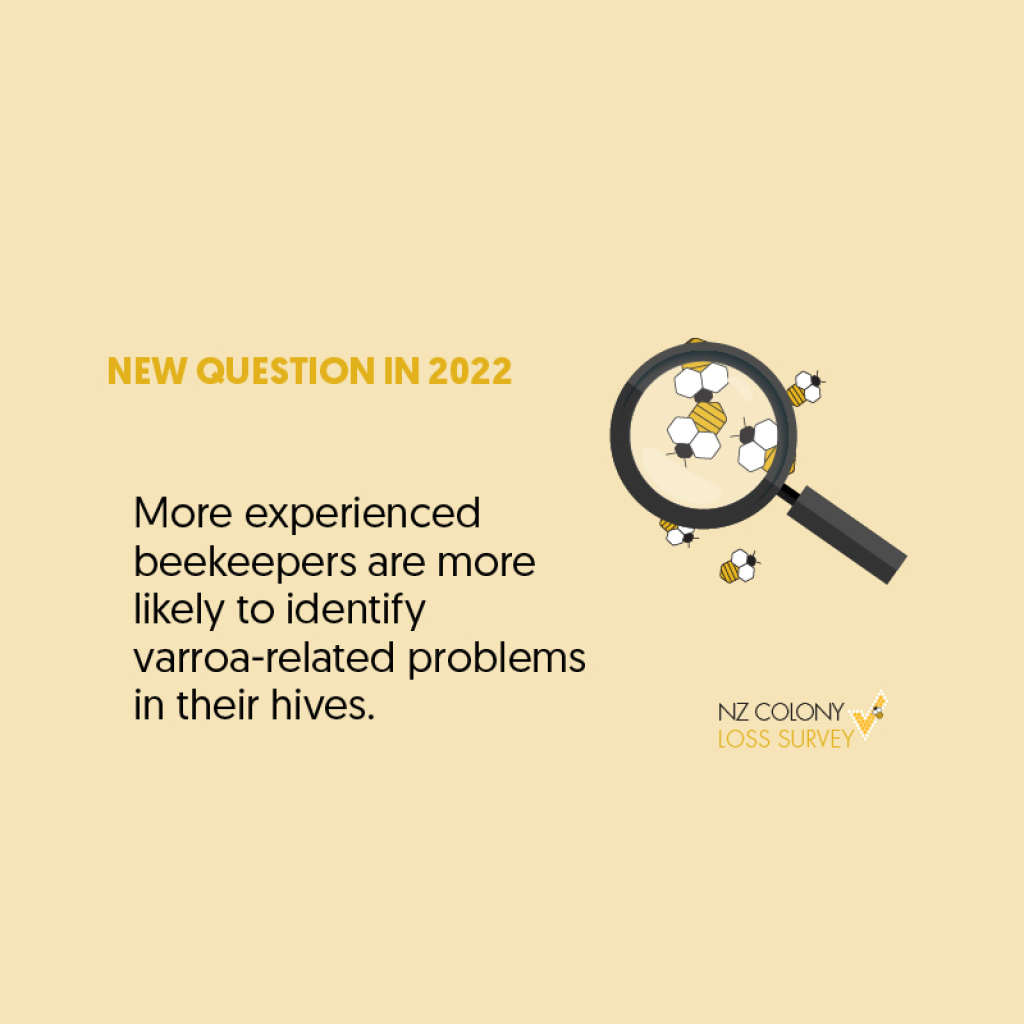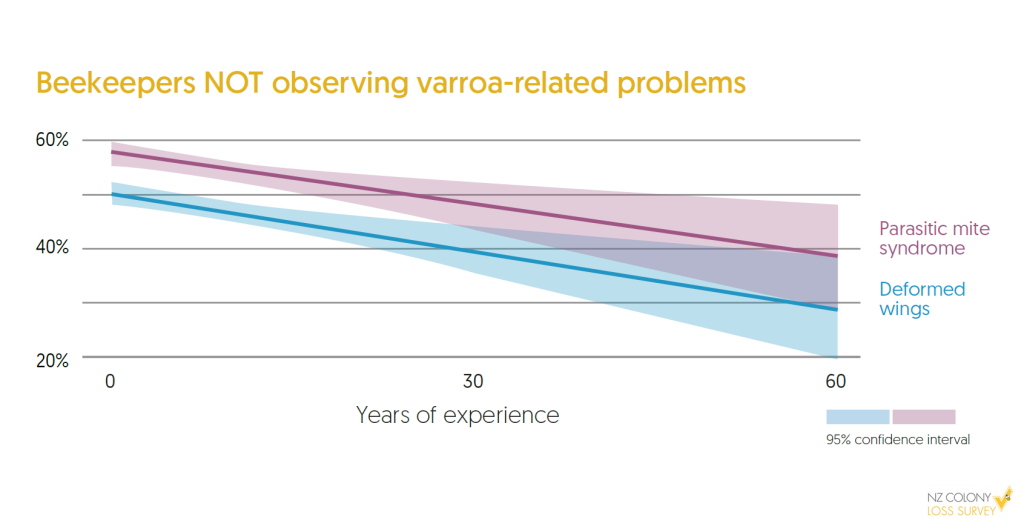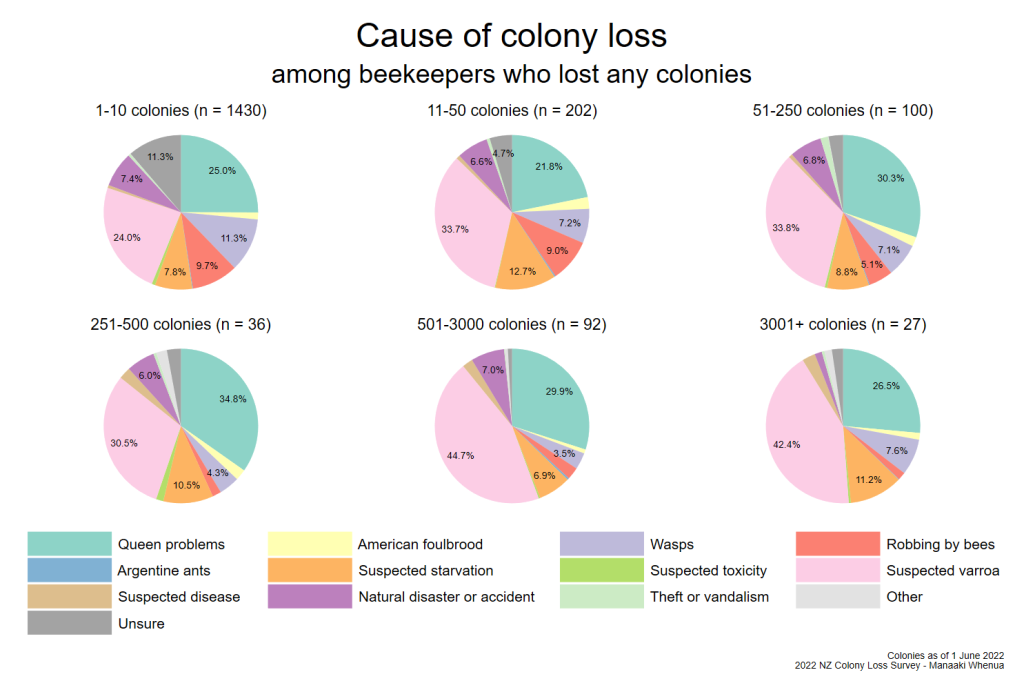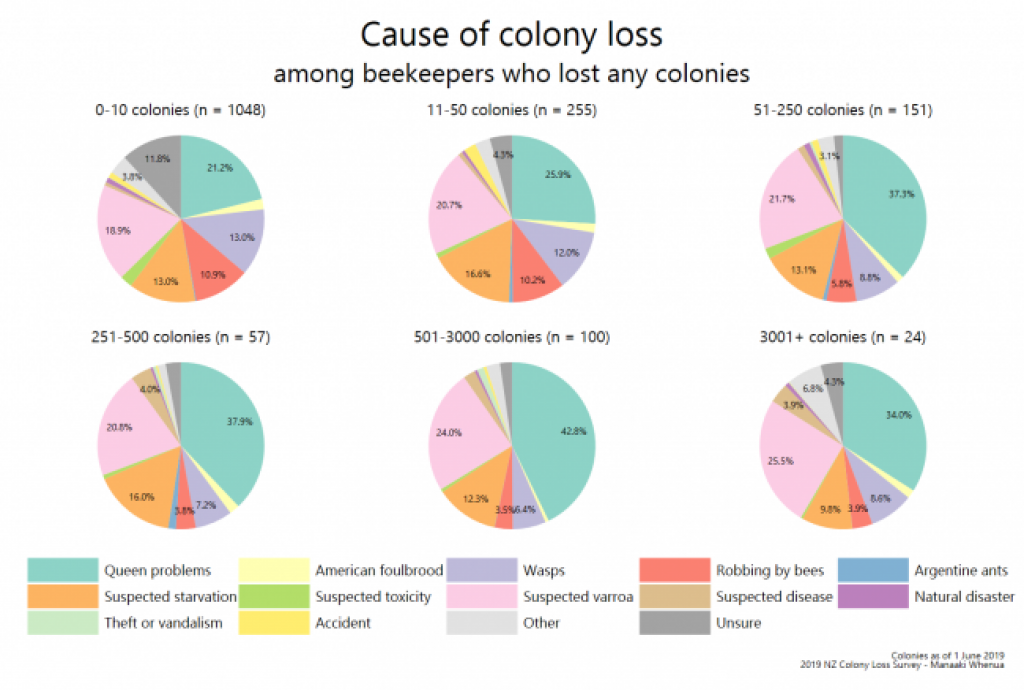I’m glad the latest NZ Colony Loss Results are raising a bit of discussion. Thanks very much to those of who complete the survey every year and to everyone for sharing your helpful ideas whether you complete the survey or not. And thanks for starting this thread,
@tristan .
I haven’t posted to the forum for a long time, but I hope you don’t mind me sharing my thoughts about some of the themes you raised. Sorry in advance for the long post.
The idea of a correction factor is an interesting one! People providing answers that don’t reflect their actual situations (whether intentionally or unintentionally) comes up a lot in discussion with colleagues who run the survey in other countries. However, I generally think this is a bigger problem when you have few respondents. For example, there are 24,000 beekeepers in Spain, yet their most recent survey data is based on 152 beekeepers with 19,500 hives. I can easily see how a. few people could shape the story that emerges. In NZ, we have one-third the number of beekeepers, but we had more than 3,500 beekeepers with more than 352,000 hives responding to the 2022 survey. With numbers like that, I think it’s harder to “skew” the data, intentionally or not.
I do hope the data is useful for government, industry, and beekeepers themselves. Here’s some takeaways I might have for different audiences. For government: The share of colonies lost attributed to varroa has increased by 288% since 2017.
Here’s one for industry: Loss rates have exceeded the level that many operators economically sustainable for a few years running.
And here’s one for beekeepers: It’s hard to know what’s happening nationally (or even regionally) if you mostly talk to beekeepers in your area whose operations look a lot like yours and who face the same challenges you do; the survey can’t tell you what’s happening in your apiary, but it can tell you whether what’s happening in your apiary is an anomaly or part of a broader trend, and that might help you figure out how to handle it. (Note: One of the things that I value about this forum is that it gives people a chance to talk with others not in their normal circle)
In terms of the questionnaire, I try to make it comprehensive, but I don’t want it to become overwhelming. The questionnaire does get updated and refined every year, so if I’m missing something important or if questions are worded ambiguously, please let me know! I generally test the survey with a dozen or so beekeepers before it goes out, and I’m happy to share the questionnaire with anyone who asks (it’s also in the back of the report on the MPI website).
Finally, I do think that dead colonies are a problem, even for commercial beekeepers. It’s true that commercials can make up deadouts by splitting, but they may miss out on pollination contracts (and possibly some of the honey yield) if they do. Plus, labour, fuel, queens, etc. aren’t free. We estimated that losses over winter 2021 cost commercial beekeepers $23 million (see the February Apiarist’s Advocate if you’re interested in this). For these reasons, it is not surprising to me that the large commercial operators often provide the most precise data we get in the survey (i.e. there are very few round numbers coming from them).
As
@JohnF noted, I’m not active on the forum. But I’m happy to continue this conversation over email with anyone who is keen.






